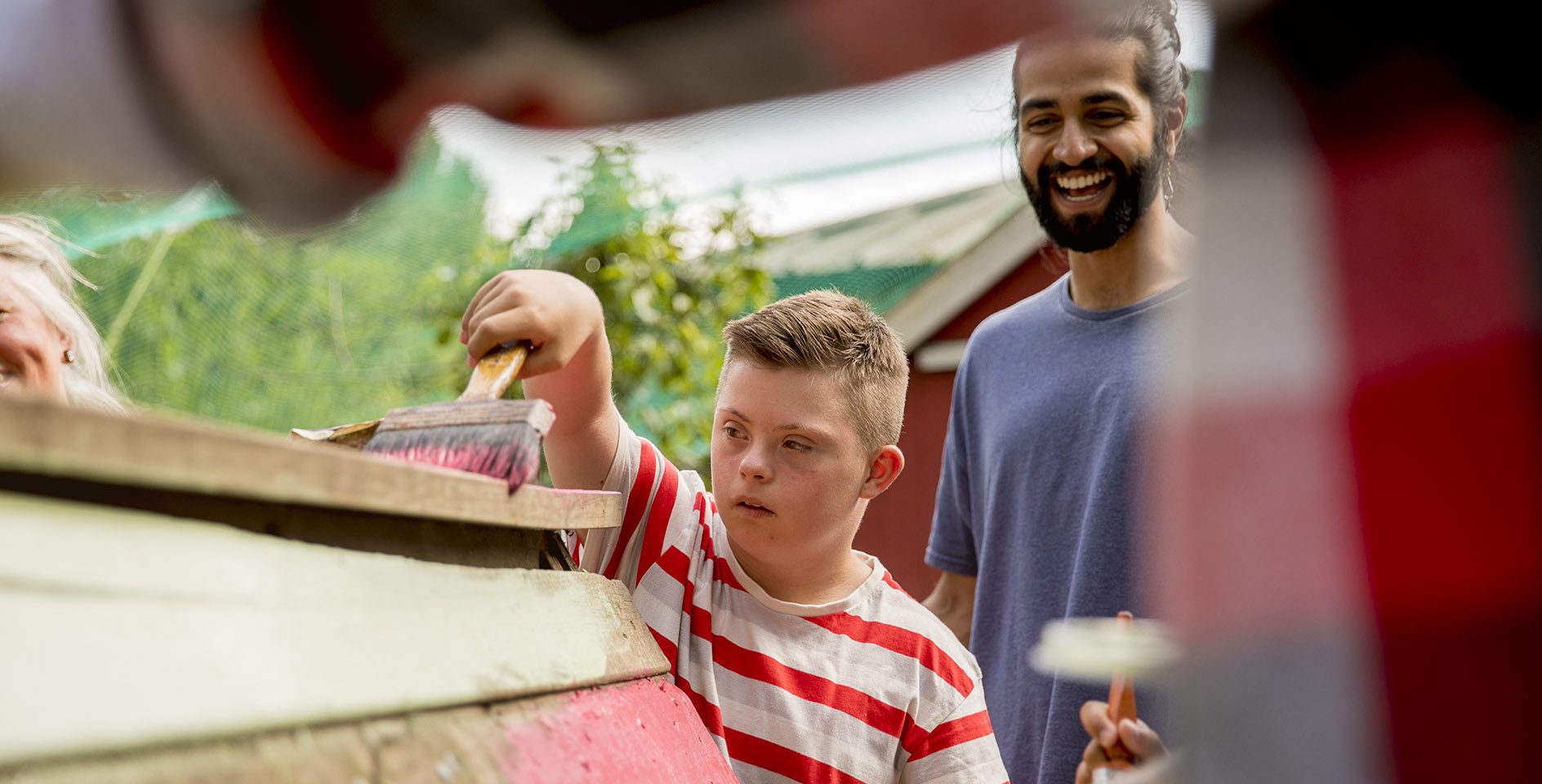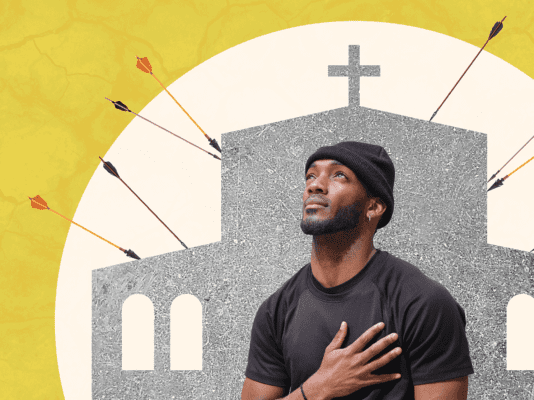My son has autism—the type that sometimes makes me want to show up to church at the very last minute and leave right after the sermon ends. He makes loud noises with his nose and mouth, pulls on me, and wants to run full speed in every direction.
While he is certainly a blessing to me, being out in public and being disruptive can sometimes be hard. As a family with special needs, it’s tempting to back down from visiting with people and serving in our church because of limitations that the disability can pose, the fear of rejection, or because we’re just plain tired.
From one family with special needs to another, however, I want to encourage you to use the unique situation the Lord has put you in to bless your church. Although your child’s disability may feel like a burden at times, I urge you to allow God to use your situation for his glory.
Here are six ways you can do this:
1. Don’t hide: Attending a small church often makes me feel like my son’s disability is amplified. It’s not quite as loud as a big church, and his movements are more noticeable. In the middle of a sermon, it’s not unusual to see my son’s feet in my face or for him to jump up in an instant to stand on his chair. His sniffling and humming make me paranoid because I don’t want to distract anyone from worshipping.
What I’ve learned, though, is that people are okay with us there. They love us. If he isn’t extremely loud, we can stay in service, and people are happy to see him bobbing up and down while singing. Even our pastor has occasionally mentioned his joy when Jacob claps at certain things said in the sermon.
It makes us so happy when people ask us if we were able to make through the entire service with him. They are cheering us on. I sometimes assumed people didn’t want us there instead of allowing people to be the church for us. Making the disability visible to everyone will help to increase awareness, compassion, and understanding. Don’t hide in the back. Allow the church to love you and your child.
2. Help start a special needs ministry: Speak to your pastor about the possibility of starting a ministry that serves individuals with special needs. The Bible calls us to share the gospel with all people (Mark 16:15), and families with special needs often have nowhere to attend church because they don’t feel that they can leave their child safely anywhere.
The compassion that people can learn through serving with special needs families is just the beginning of how you can bless your church.
Many pastors may already be considering this, so be ready with your ideas. And wait patiently if it doesn’t begin at once. The ministry can start small with a buddy system in which people volunteer to go alongside individuals with special needs to their Bible studies and let parents attend worship or a Bible study alone occasionally.
3. Offer to serve in the special needs ministry: No one knows more about special needs than you. Special needs parents are often self-educated research experts who have learned how to change diets, adjust learning methods, attend special education meetings, use equipment, and more. It’s tempting to want to sit back and allow others to step up and serve your family.
We want people to feel as passionate about special needs as we do, yet, people usually don’t know a lot about special needs or just don’t know where to start. An “expert” like you could make a huge difference. Offer to be a buddy or to train buddies or volunteers. Offer ways to adjust curriculum to meet the needs of your children. Parent involvement is more important in special needs ministry than in any other because each child’s needs are so unique.
4. Join a small group or Bible study: Hiding away in the back of the church is appealing when life feels crazy. It’s scary to allow people in to see your “different” way of life. However, God wants us to live in fellowship with other believers. You must trust that people who love the Lord will love and accept your family, disability and all.
My husband and I had to offer to host a Bible study in our home due to my son’s constant elopement from safety. This has been a source of great encouragement for us. People come to our home every week and worship God and fellowship despite my son’s frequent interruptions of song and humming. We feel connected in a deep and meaningful way. Being a part of a small group has grown our faith tremendously. In the same way, I encourage you to allow fellow believers to love on you and to learn from you as well as opening your heart to others.
5. Don’t get offended easily: I’ve heard it said that people are often on edge when speaking to people about sensitive subjects because everyone gets so easily offended these days. If you’re living life with other believers, remember that no one is perfect. It is inevitable that someone will say something offensive.
My rule is to always give people the benefit of the doubt (1 Cor. 13). If they ask you something in an insensitive way, instead of being upset, explain the better way to say it (Prov. 19:11). If it isn’t a big deal, try to see the point they are attempting to make instead of pointing out their mistakes. Are they being inquisitive? Are they offering suggestions for help? Yes, you’ve probably heard all of the remedies anyone could ever offer, but remember to show grace because those people have good intentions with love in their hearts for you.
6. Serve in other areas: This is hard—serving in other areas of the church with a child with special needs can be difficult and messy. But, ministry is difficult and messy. Since our church is a church plant, we set up and tear down the entire sanctuary area each Sunday. I help my son fold chairs and put away items that would take another person half the time. However, serving helps increase our family’s faith, and it helps us feel like we’re part of our church family.
A church member told me recently that even if the church is gathering to do something that we could not do, they would love for us to simply be there with them. It had never occurred to me to just be as involved as we can. We don’t have to serve in the same way everyone else does, but we do need to serve for the benefit of the church and for our own hearts. It may not look like any other family, but it can still be a major blessing.
Conclusion
For a long time, I thought that our family couldn’t contribute to our church as significantly or meaningfully as other families due to our limitations. I have learned that God has called us not only to a different type of parenting, but also a different type of serving. Even though we cannot do everything that other families can, it is valuable to have many different members in the church that all serve in unique ways. The compassion and understanding that people can learn through interacting and serving with individuals with special needs and their families is just the beginning of how you can bless your church. Don’t be fooled in to hiding in the background, special needs family. Serve your church in the best way that you can, and bless them through your circumstances.









